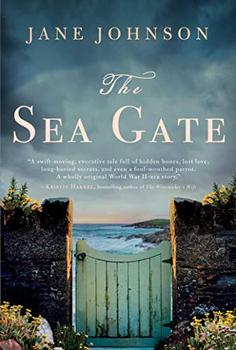Summary | Excerpt | Reading Guide | Reviews | Beyond the book | Read-Alikes | Genres & Themes | Author Bio

Sarah Blake's second novel (following Grange House, published in 2001) follows the lives of three women - Frankie, Emma and Iris - through the early years of World War II. It is a book about love and loss, as are so many war-era narratives, but what sets it apart is that it's also a novel about the power of words - the remarkable capacity they contain to move, motivate and inform over time and space. Letters written, reports broadcast, stories told… together they play a crucial role in The Postmistress.
Frankie's story is at the heart of this novel, and it is through Frankie's experiences as a war correspondent that Blake highlights important aspects of World War II, most notably the bombing of London in the Blitz, and the harrowing and often futile attempts made by Europe's Jewish population to flee the continent ahead of Hitler's advancing forces. Blake addresses both of these chapters of the war, bringing them to life for her readers and skillfully conveying the multiple, often conflicting emotions of those involved.
"Boom. The first shell shot out of one of the guns, roaring toward the sky at a plane no one could see, but whose sound the spotters tried to read as they started yelling coordinates. The first shell was followed right away by another, and the windows of the houses around the park buckled in the dim light and popped. Shattering glass silvered down into the street… Now, despite the cold of the October night, the men were sweating, the shells roaring out in answer to the spotters' shouts, stripped to their shirtsleeves and going at their guns like drummers. Come on, come on, come on, the gunners bellowed, drawing fire, and the lights blazed green and bright electric blue and the cordite burned down the back of their throats."
Frankie's tale lingered in my mind long after I turned the last page. Indeed, the portions of the narrative that relate her experiences are some of the best and most moving writing I've encountered in quite some time. Readers will without a doubt find themselves completely immersed in these chapters, surfacing with a much richer understanding of these two facets of World War II history.
While Blake's writing is beautiful throughout, the plot and characters are somewhat uneven. The sections of the novel set on Cape Cod are rather commonplace, and both Iris and Emma are equally unremarkable. These chapters provide a good contrast to those which deal with the war and do a fine job of realistically portraying an American public mostly oblivious to the events taking place overseas, but overall these parts are somewhat bland and fail to fully engage the reader. In addition, the author includes several off-putting and seemingly random sex scenes that struck me as odd, rather than erotic. They detract from the sections of great writing and do nothing to improve the lackluster sections.
Those flaws aside, The Postmistress is definitely worth reading. Blake's writing is rich and evocative, and much of the book is deeply affecting and though-provoking. Historical fiction fans in particular will find the novel illuminating, and it is likely to become a popular choice for book clubs.
Sarah Blake talks about her inspiration for The Postmistress:
![]() This review was originally published in The BookBrowse Review in March 2010, and has been updated for the
February 2011 edition.
Click here to go to this issue.
This review was originally published in The BookBrowse Review in March 2010, and has been updated for the
February 2011 edition.
Click here to go to this issue.

If you liked The Postmistress, try these:

by Jane Johnson
Published 2021
A broken family, a house of secrets - an entrancing tale of love and courage set during the Second World War.

by Amanda Hodgkinson
Published 2012
A tour de force that echoes modern classics like Suite Francaise and The Postmistress.
Your guide toexceptional books
BookBrowse seeks out and recommends the best in contemporary fiction and nonfiction—books that not only engage and entertain but also deepen our understanding of ourselves and the world around us.